DBS CEO Tan Su Shan is Fortune’s most powerful woman in Asia; Josephine Teo among most influential
Sign up now: Get ST's newsletters delivered to your inbox
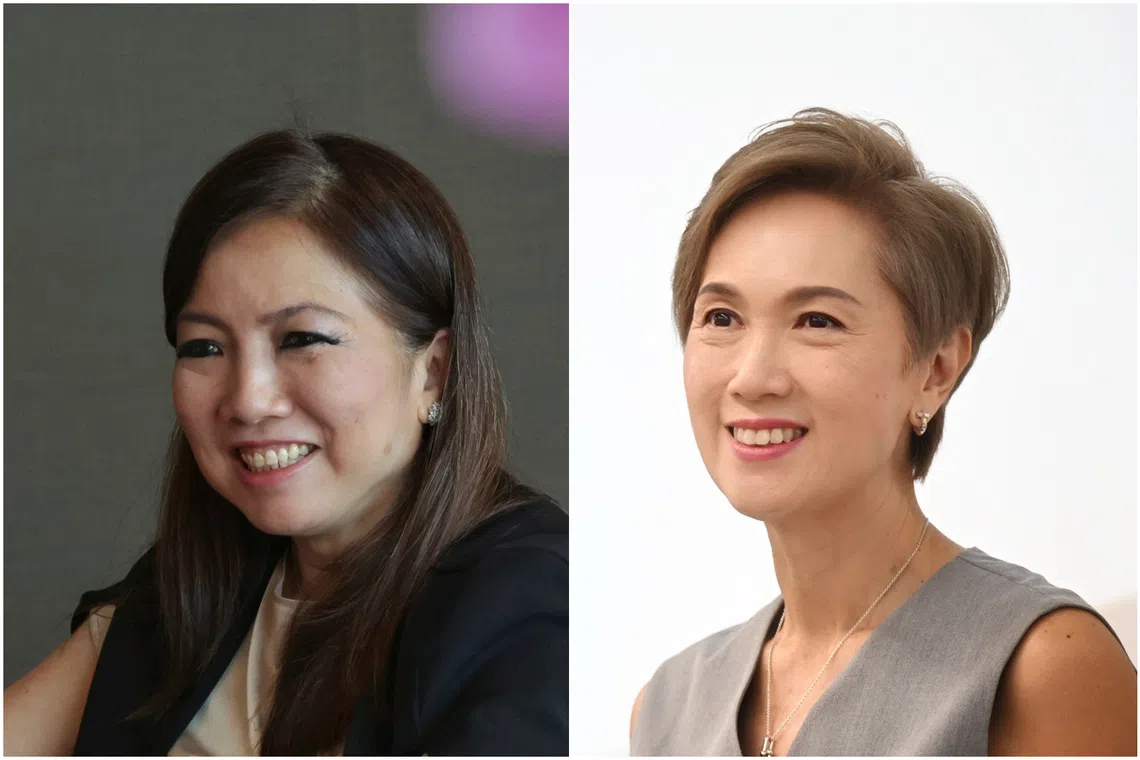
DBS CEO Tan Su Shan (left) topped Fortune's list of the most powerful women in Asia, while Digital Development and Information Minister Josephine Teo was named among 12 “Most Influential Women”.
ST PHOTO: KEVIN LIM, CHONG JUN LIANG
SINGAPORE - DBS chief executive Tan Su Shan, who took over the reins at the bank in 2025, has topped Fortune’s 2025 list of the most powerful women in Asia.
Selected by Fortune editors for their measurable impact, reach and capacity to shape the future, the list includes influential women leaders who have seized on regional and global volatility as opportunities for business advantage, the business magazine said.
Separately, Fortune in its first “Most Influential Women” list named Singapore Minister for Digital Development and Information Josephine Teo among the 12 women from policymaking, pop culture and professional sports “who together show the diverse ways that power gets expressed across the Asia-Pacific”.
Also on this list is Tokyo Governor Yuriko Koike, the four members of K-pop girl group Blackpink, actresses Michelle Yeoh and Xin Zhilei, Olympic skier Eileen Gu, and tennis players Naomi Osaka, Zheng Qinwen and Alexandra Eala.
On Mrs Teo, Fortune said she has overseen updates to Singapore’s pioneering AI governance framework
In her previous role as minister for manpower, she implemented a 10-year road map to raise retirement and re-employment ages, championed a 30 per cent cumulative wage increase for essential workers, and expanded wage support for Singapore’s most vulnerable citizens, Fortune said.
As for Fortune’s most powerful women in Asia, here are the leaders on the list:
1. Tan Su Shan (DBS)
Ms Tan Su Shan, CEO of DBS, has spent more than 15 years at Singapore’s largest bank after stints at Morgan Stanley and Citi.
Before she succeeded Mr Piyush Gupta in March
In Singapore’s banking world, Ms Tan is known for having taken a Bloomberg terminal into the hospital when she gave birth in 1999; she recalls having had “no choice” but to do so, as the yen was plunging against the US dollar back then.
Ms Tan is no stranger to accolades from Fortune. She ranked sixth in the magazine’s 2025 edition of the “100 Most Powerful Women in Business” list
2. Grace Wang (Luxshare)
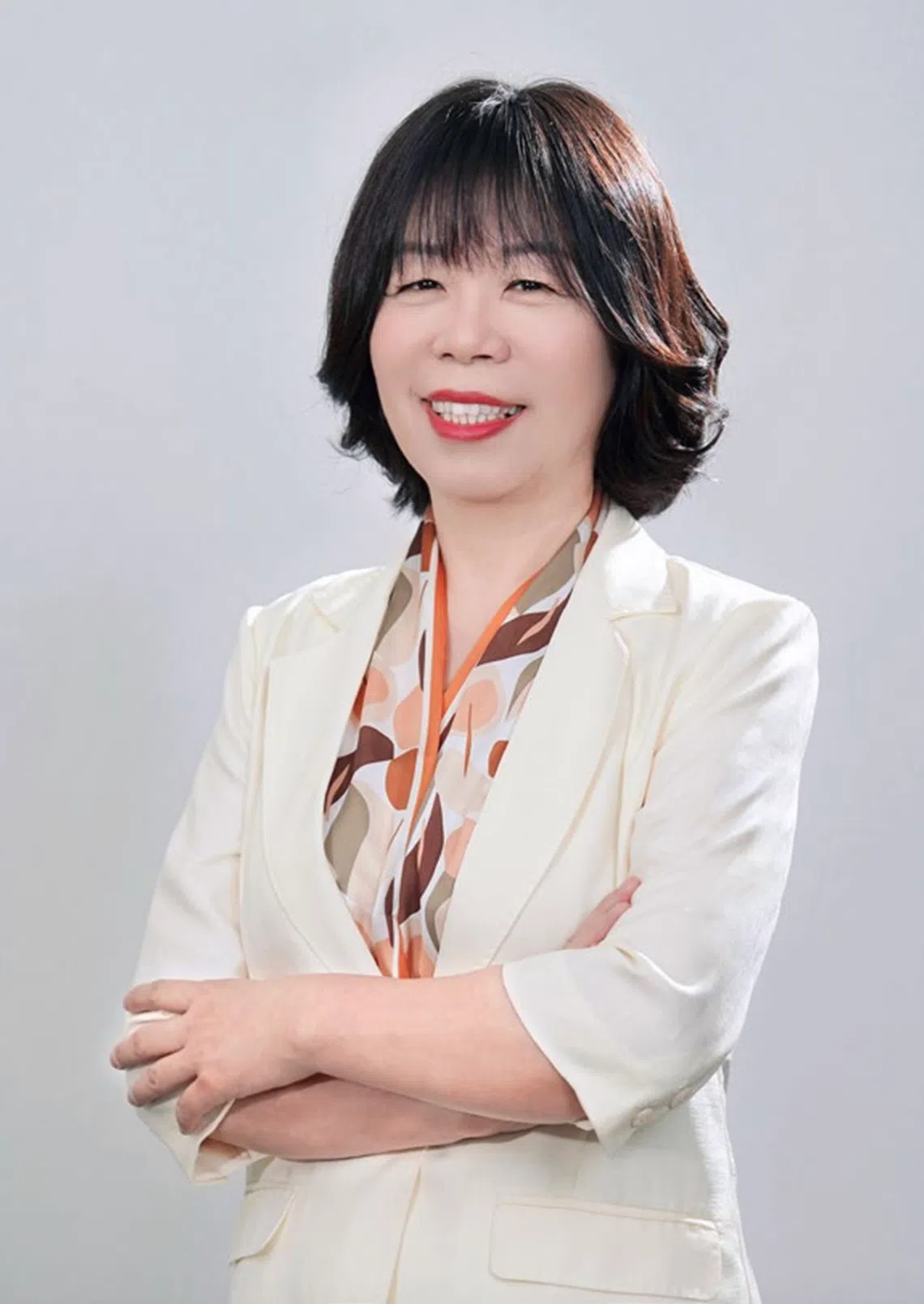
Grace Wang is the co-founder, chair and CEO of Luxshare Precision Industry.
PHOTO: LUXSHARE-ICT
Ms Grace Wang is the co-founder, chair and CEO of Luxshare Precision Industry, an electronic and computer components manufacturer based in Dongguan, China.
Ms Wang co-founded the company with her brother in 2004 after spending a decade at Taiwanese electronic components giant Foxconn, which manufactures Apple products.
Under Ms Wang’s leadership, Luxshare’s top line grew past the US$37 billion (S$48 billion) mark in 2024 and the company made it to the Fortune Global 500 list.
Luxshare has been listed on the Shenzhen Stock Exchange since 2010 and is gearing up for a secondary listing in Hong Kong.
3. Meng Wanzhou (Huawei)
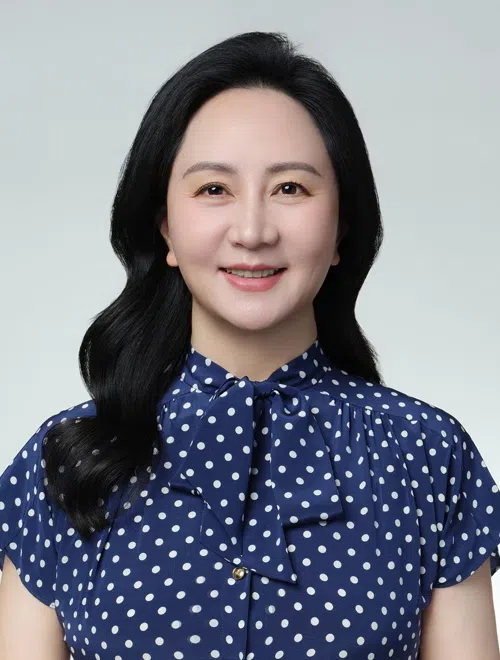
Meng Wanzhou is the deputy chairwoman, rotating chairwoman and CFO of Huawei.
PHOTO: HUAWEI
Ms Meng Wanzhou is the deputy chairwoman, rotating chairwoman and chief financial officer of Chinese smartphone maker Huawei. She is the daughter of Huawei CEO Ren Zhengfei, a former Chinese military officer turned entrepreneur who founded the company.
Huawei, which is frequently caught in the crosshairs of US-China politics, is a key part of China’s chip plans to reduce reliance on foreign semiconductor suppliers such as Nvidia.
A rival of Nvidia, the company recently announced its long-term plans
4. Bonnie Chan (HKEX)
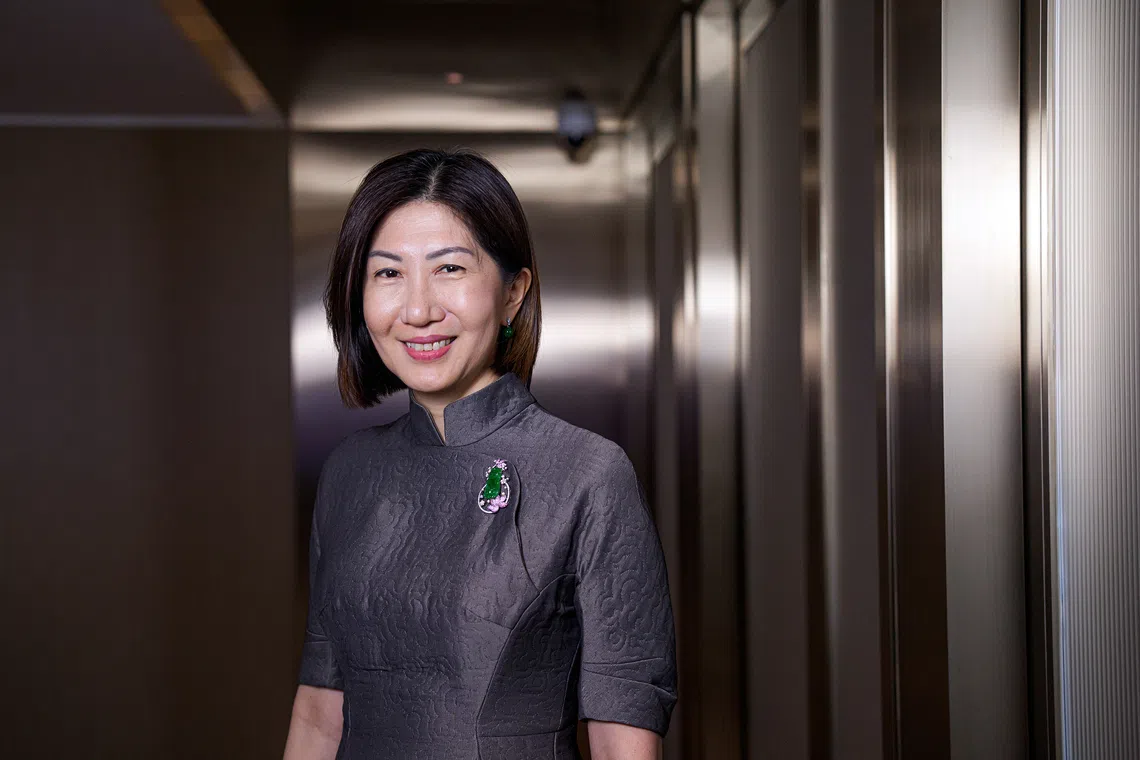
Bonnie Chan is the CEO of Hong Kong Exchanges and Clearing.
PHOTO: BLOOMBERG
Ms Bonnie Chan is the CEO of Hong Kong Exchanges and Clearing (HKEX). She is possibly the city’s second-most important financial ambassador, according to Fortune.
She helms the Hong Kong bourse operator at a time when the city’s stock market is undergoing a massive rally and was crowned as one of the top initial public offering venues globally.
Under Ms Chan’s leadership, HKEX’s drive to end single-gender boards has made progress and only 0.7 per cent of Hong Kong’s 2,600 listed companies have entirely male boards.
5. Kathy Yang (Foxconn)
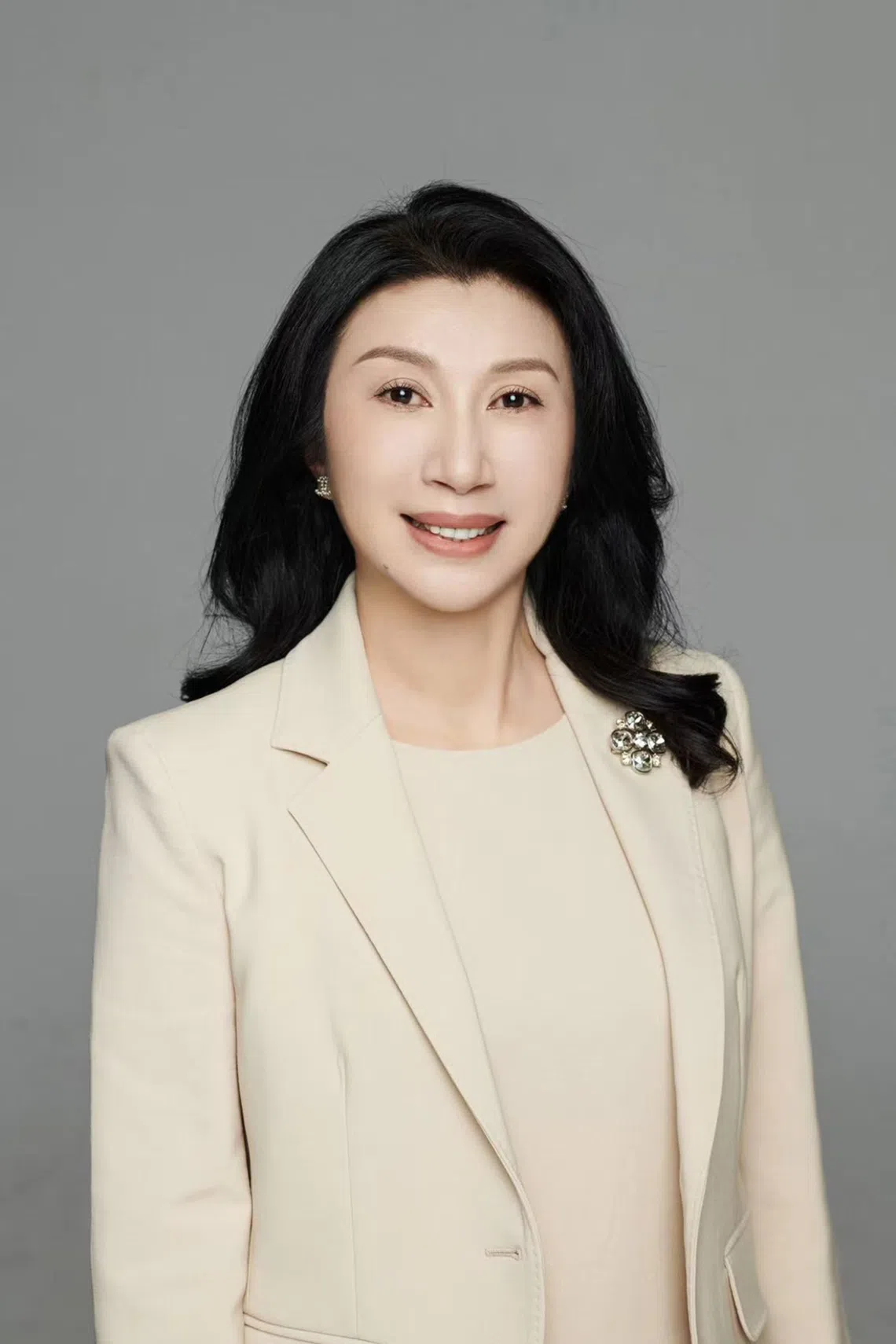
Kathy Yang is the rotating CEO of Foxconn.
PHOTO: FOXCONN
Ms Kathy Yang is the rotating CEO of Foxconn, which posted record revenue in 2024, partly driven by the AI boom.
Ms Yang is the first female to hold the post of rotating CEO at the Taiwanese electronics manufacturing behemoth.
As the Apple supplier’s global chief campus operation officer, Ms Yang oversees Foxconn’s manufacturing plants and logistics and trade compliance operations.
She is also responsible for supply chain manufacturing platform Jusda, Foxconn’s logistics unit.
6. Malina Ngai (Watson)
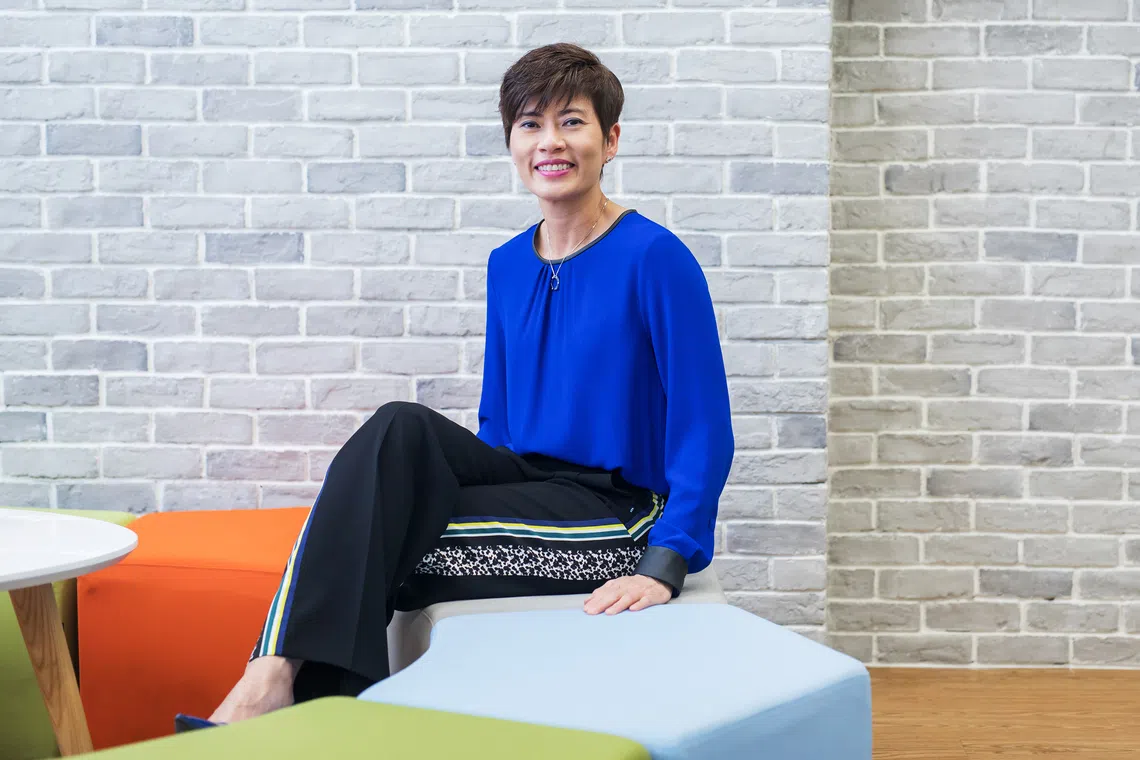
Malina Ngai is the CEO of AS Watson Group.
PHOTO: BLOOMBERG
Dr Malina Ngai is the CEO of AS Watson Group, the world’s largest health and beauty chain. With a career that began in professional sports, she was a former rowing bronze medallist for Hong Kong in the 1994 Asian Games before transitioning to the corporate world.
Dr Ngai joined AS Watson’s parent company, CK Hutchison (formerly Hutchison Whampoa), in 2000 and moved to AS Watson in 2001.
Rising steadily through the ranks, she was appointed group CEO in 2024, becoming the first woman to hold that position.
Dr Ngai now oversees a massive global retail portfolio that includes well-known brands such as Watsons, Superdrug and The Perfume Shop. AS Watson operates more than 17,000 retail stores worldwide, with products ranging from health and beauty to luxury perfumeries and cosmetics, food, electronics and fine wine.
7. Roshni Nadar Malhotra (HCLTech)
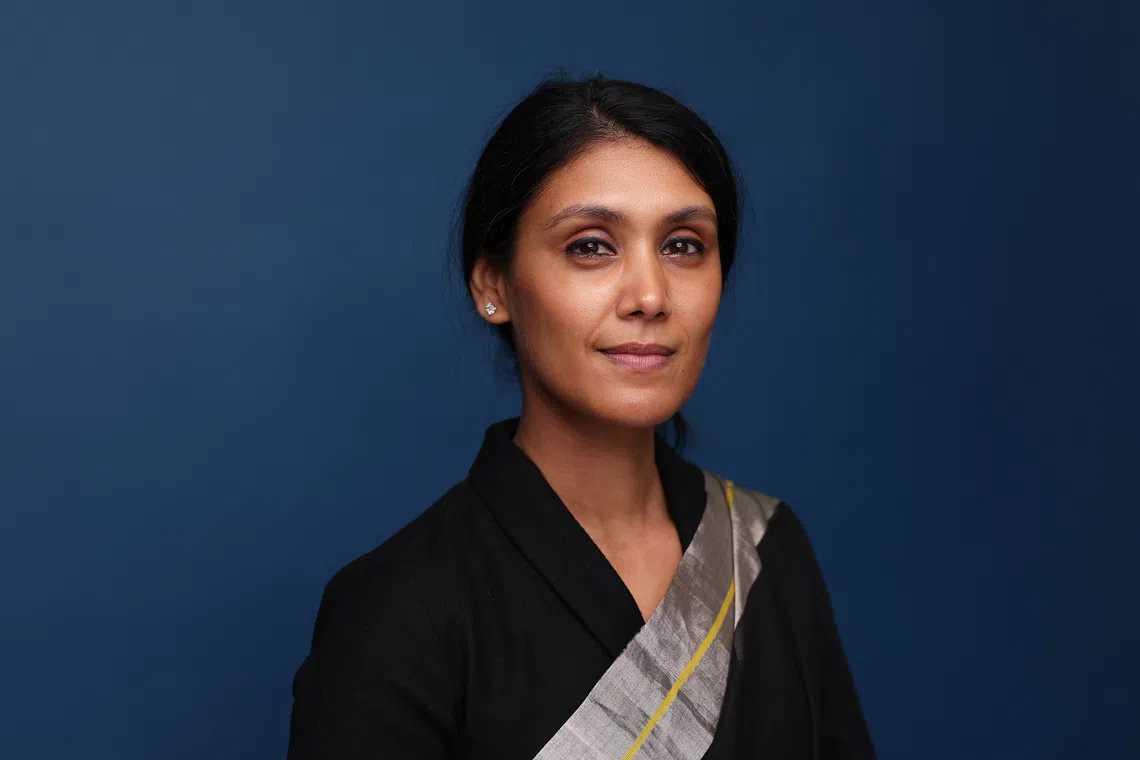
Roshni Nadar Malhotra is the chairwoman of HCL Technologies.
PHOTO: BLOOMBERG
Ms Roshni Nadar Malhotra is the first woman to lead a listed IT company in India.
She is the chairwoman of HCL Technologies (HCLTech), and the only child of HCL Group founder and third-richest person in India, billionaire businessman Shiv Nadar.
Ms Roshni is now India’s richest woman – and third-richest person overall – after her father handed over part of his stake in the company.
Taking over the role from her father in 2020, she has been instrumental in shaping the strategic direction of the enterprise.
In 2024, under her leadership, HCLTech’s stock surged to an all-time high as Indian tech majors collectively added US$22 billion in market value in just two days.
8. Choi Soo-yeon (Naver)
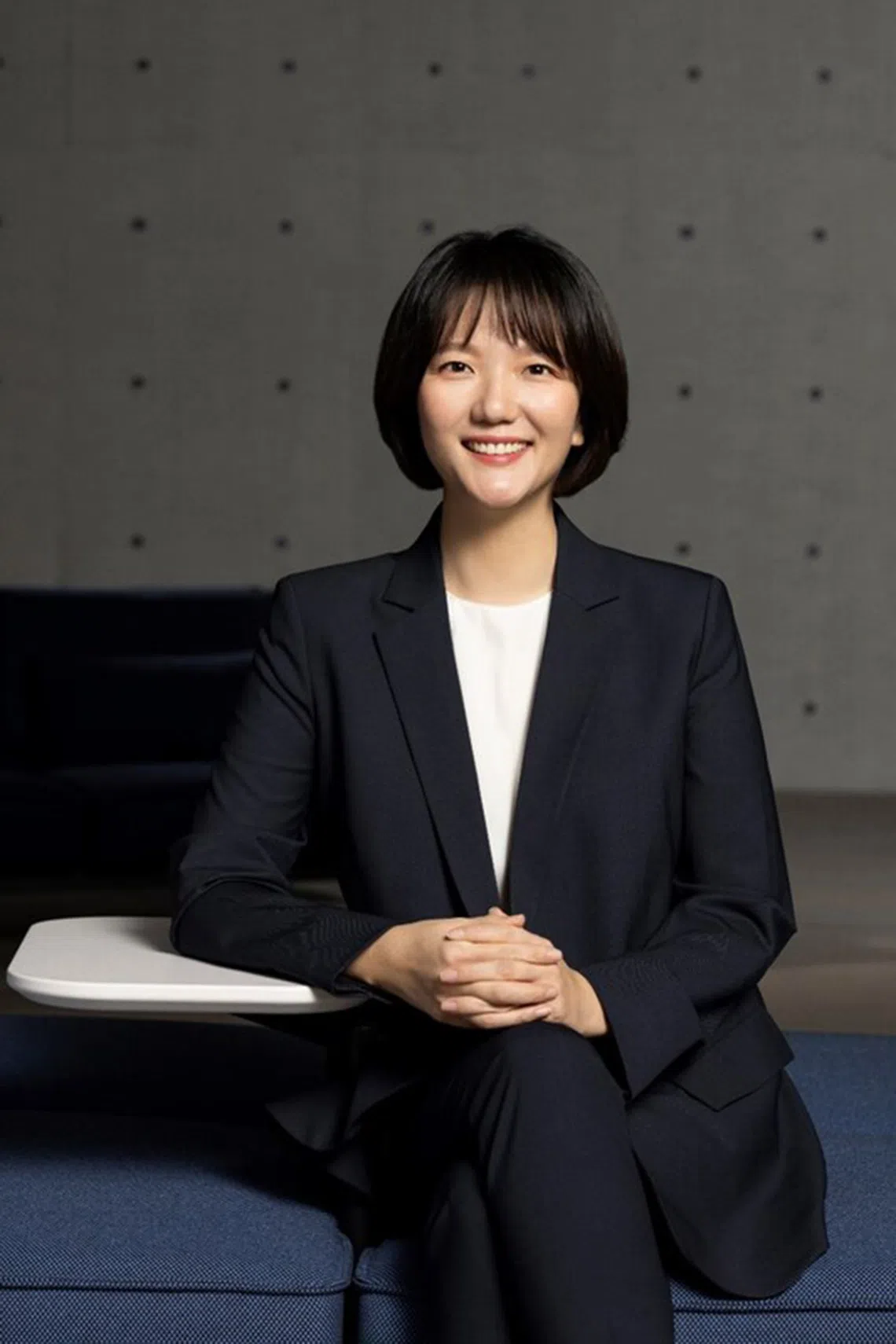
Choi Soo-yeon is the CEO of Naver Corporation.
PHOTO: NAVER
Ms Choi Soo-yeon is the CEO of Naver Corporation, South Korea’s largest internet company. She was appointed in 2022 as the company’s youngest CEO at 40 years old.
Now in her second term as CEO, Ms Choi is trying to integrate artificial intelligence (AI) into the company’s core services. In July, Naver released AI reasoning models for free commercial use.
In 2024, Naver reported revived strength in its advertising and e-commerce businesses to grow revenue past 10 trillion won (S$9.2 billion), a first for any local internet company.
In 2025, Ms Choi was appointed to the United Nations Global Compact board of directors, the world’s largest corporate sustainability initiative, to strengthen international partnerships for AI governance.
9. Makiko Ono (Suntory Beverage and Food)
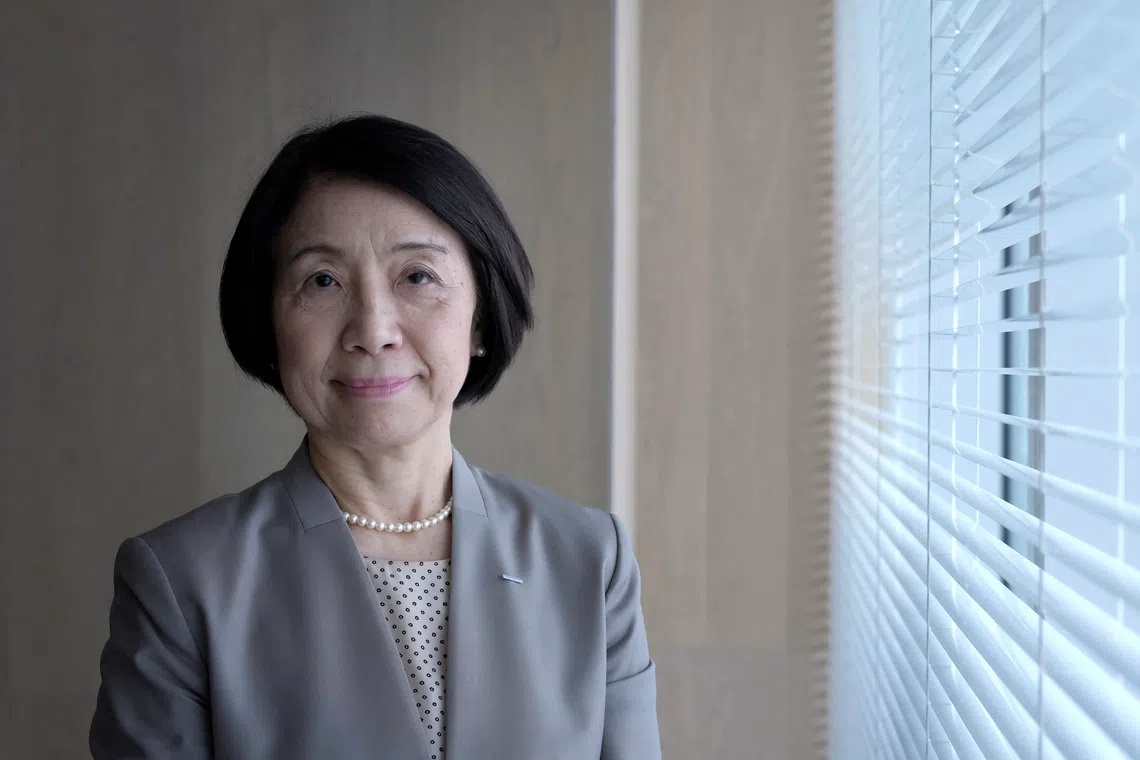
Makiko Ono is the CEO of Suntory Beverage and Food.
PHOTO: BLOOMBERG
Ms Makiko Ono is the CEO of Suntory Beverage and Food, a major subsidiary of global beverage giant Suntory Holdings and the Japanese conglomerate behind whiskies such as Jim Beam and The Macallan.
Her appointment in 2023 was a landmark event in corporate Japan, making her the first woman to lead a publicly listed Japanese company with a market capitalisation of more than one trillion yen (S$8.6 billion).
Ms Ono’s business reported a record 1.7 trillion yen in revenue for its most recent fiscal year, a 2.7 per cent increase from the previous year.
Her leadership is seen as a significant step forward for gender diversity in Japan’s traditionally male-dominated corporate landscape, where less than 1 per cent of companies on the Tokyo Stock Exchange have a female CEO.
10. Mitsuko Tottori (Japan Airlines)
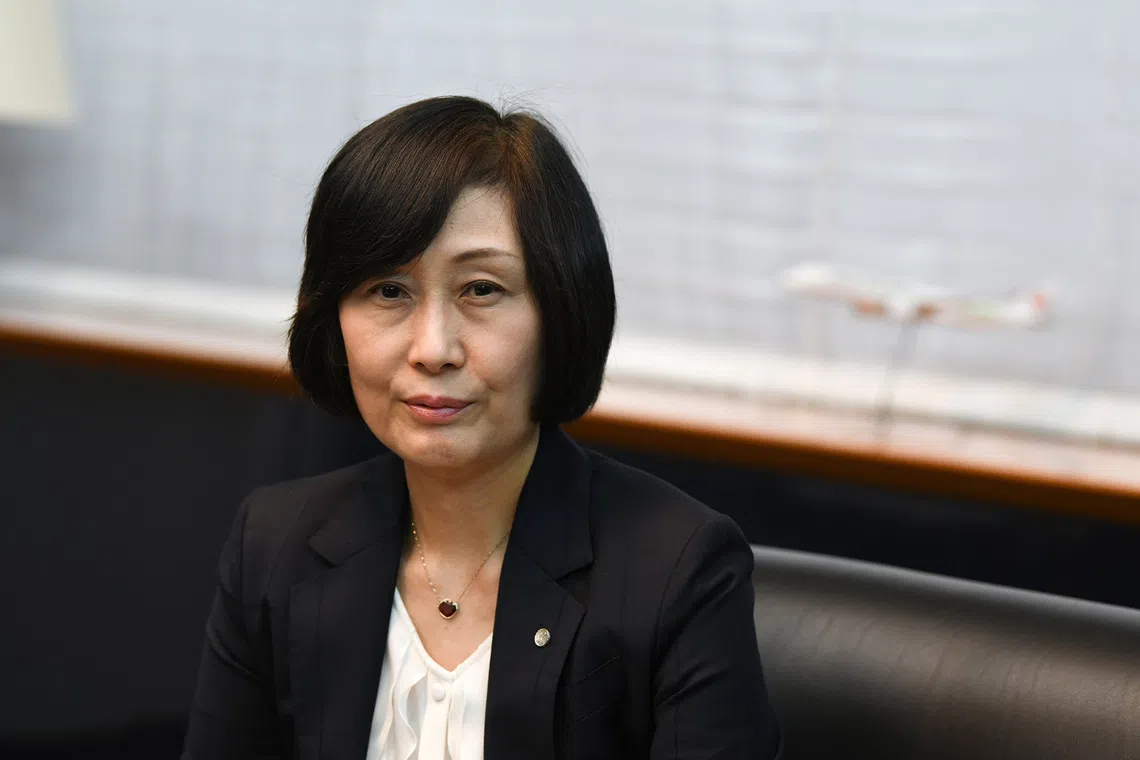
Mitsuko Tottori is the CEO of Japan Airlines.
PHOTO: BLOOMBERG
Ms Mitsuko Tottori is the first female CEO to lead Japan Airlines (JAL).
Her career with JAL began in 1985 when she joined as a cabin crew member. She worked her way up to become the senior director of cabin attendants and chief customer officer, and was appointed CEO in 2024
In 2025, her tenure hit some turbulence: she took a two-month 30 per cent pay cut
Under Ms Tottori’s leadership, the airline reported a record US$12.7 billion in revenue for its fiscal year. THE BUSINESS TIMES
With additional information from The Straits Times


